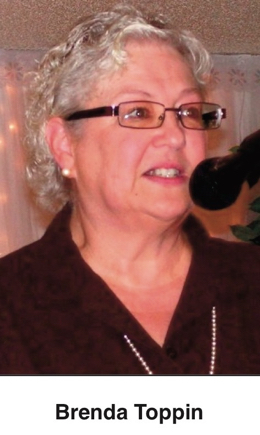Rascals case in brief
In the beginning, in 1989, more than 90 children at the Little Rascals Day Care Center in Edenton, North Carolina, accused a total of 20 adults with 429 instances of sexual abuse over a three-year period. It may have all begun with one parent’s complaint about punishment given her child.
Among the alleged perpetrators: the sheriff and mayor. But prosecutors would charge only Robin Byrum, Darlene Harris, Elizabeth “Betsy” Kelly, Robert “Bob” Kelly, Willard Scott Privott, Shelley Stone and Dawn Wilson – the Edenton 7.
Along with sodomy and beatings, allegations included a baby killed with a handgun, a child being hung upside down from a tree and being set on fire and countless other fantastic incidents involving spaceships, hot air balloons, pirate ships and trained sharks.
By the time prosecutors dropped the last charges in 1997, Little Rascals had become North Carolina’s longest and most costly criminal trial. Prosecutors kept defendants jailed in hopes at least one would turn against their supposed co-conspirators. Remarkably, none did. Another shameful record: Five defendants had to wait longer to face their accusers in court than anyone else in North Carolina history.
Between 1991 and 1997, Ofra Bikel produced three extraordinary episodes on the Little Rascals case for the PBS series “Frontline.” Although “Innocence Lost” did not deter prosecutors, it exposed their tactics and fostered nationwide skepticism and dismay.
With each passing year, the absurdity of the Little Rascals charges has become more obvious. But no admission of error has ever come from prosecutors, police, interviewers or parents. This site is devoted to the issues raised by this case.
On Facebook
Click for earlier Facebook posts archived on this site
Click to go to
Today’s random selection from the Little Rascals Day Care archives….
Click for earlier Facebook posts archived on this site
Click to go to
Today’s random selection from the Little Rascals Day Care archives….
In 1993, predicting a historic marker – and more
 June 18, 2015
June 18, 2015
Given my thoroughly unsuccessful attempt to persuade the State of North Carolina to erect a historic marker recalling the Little Rascals Day Care case, I had to laugh at discovering this 1993 letter to the Elizabeth City Daily Advance:
“Dear Editor:
“The year is 2022. The town of Edenton, last stop on the witch-hunt trail beginning in Salem, Mass., with an intermediate stop at Joe McCarthy’s office in Washington, D.C., has finally decided to build a historic marker. (It will be) directly across the street from the town’s $4 million tour center, where people gather from across the nation (indeed, from around the world) to see and feel and learn about the Edenton witch hunts of 1990-1993….
“It is here where the walking tours start, where the T-shirts are sold and where the buses disgorge their curious cargo….”
Letter writer David W. Tucker of San Francisco – who in all likelihood had recently watched “Innocence Lost: The Verdict” – expressed confidence that the marker would eventually be approved, even if not by 2022:
“The only question is whether the marker will speak of the community’s collective shame
or, instead, of the individuals and groups of good will and courage who brought lasting honor to Edenton by rescuing Bob Kelly, Dawn Wilson, the Twiddy family and the others from the nightmare that fear, hate and ignorance visited upon them….”
A theory on ‘the seeds of this case’
Oct. 26, 2011
“Many of the investigators in the Little Rascals case (seem to have been) poised to find allegations of sexual abuse.
“The seeds of this case may have been sown in the spring of 1988, months before the first allegations of child sexual abuse…. At a 3-day conference in the Outer Banks town of Kill Devil Hills, law enforcement and social services workers convened to learn about the dangers of child molesters operating day-care facilities.
“The seminar was co-sponsored by a counseling group and assisted by Judy Abbott, a social worker who would become one of the most active therapists for the child victims in this case. The featured speaker was Ann Burgess, editor of the book ‘Child Pornography and Sex Rings’ (1984).
“Also attending were H. P. Williams, who would co-prosecute the case, and Brenda Toppin, the Edenton police officer who was first to interview most of the children in the case and to advise parents of their abuse.”
– From “Jeopardy in the Courtroom: A Scientific Analysis of Children’s
Testimony” by Stephen J. Ceci and Maggie Bruck (1995)
Kids say the darndest things… eventually
 April 24, 2015
April 24, 2015
“As was made clear repeatedly upon testimony by experts, the very first reports of the children were the ones that would be most critical in determining whether sexual abuse had indeed occurred. Yet in the first interviews, the children said almost nothing of any interest with regard to sexual abuse, and the police officer who conducted these hearings destroyed all of her notes and all of her tapes of what happened before the case went to court. She was approached by several of the mothers initially because she had taken a short course in investigating cases of child abuse.
“Officer (Brenda) Toppin was crucial to the whole process because she was the one who escalated the case from a minor complaint by one parent into a case of massive sexual abuse of dozens of children by scores of day-care workers.”
– From “Understanding The Crucible: A Student Casebook to Issues, Sources, and Historical Documents” by Claudia Durst Johnson and Vernon Johnson (1998)
‘We’ve learned a lot….’ (Too bad it took so long)
March 30, 2012
Kee MacFarlane is the notorious therapist who led the ritual abuse scare of the late 1980s (and pioneered the misuse of anatomically correct dolls in interviewing children). In just four months MacFarlane diagnosed more than 360 children at the McMartin Pre-School as abused.
In 2005 she declined to be interviewed by CNN but sent a statement:
“We’ve learned a lot in 20 years about how to interview children for forensic purposes and how to manage complex cases such as this one. It would be a sad commentary if we didn’t learn from such painful experience.”
Not much of a mea culpa – but still more than anyone connected with the Little Rascals prosecution has managed.











0 CommentsComment on Facebook